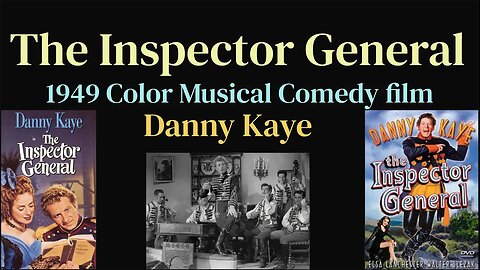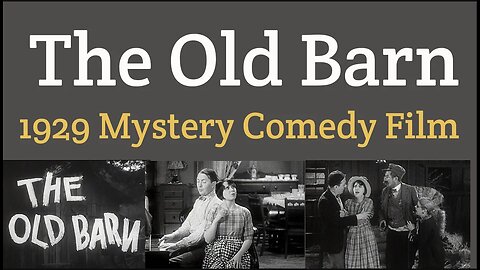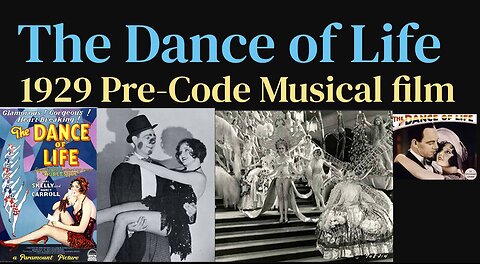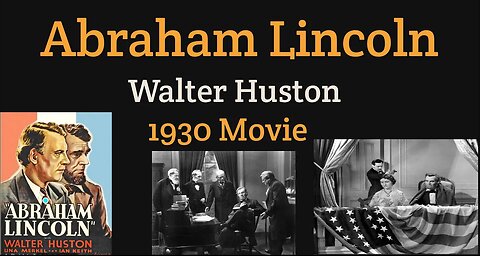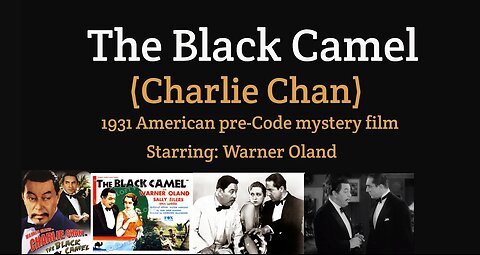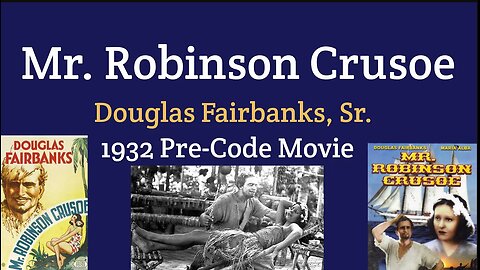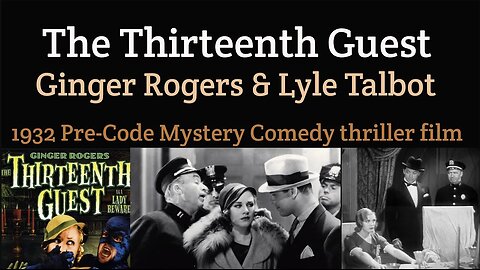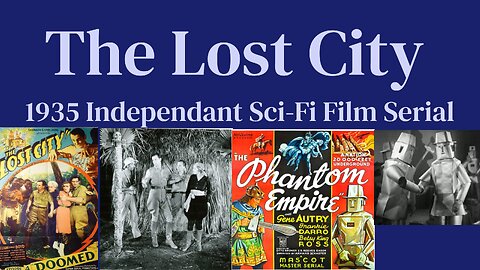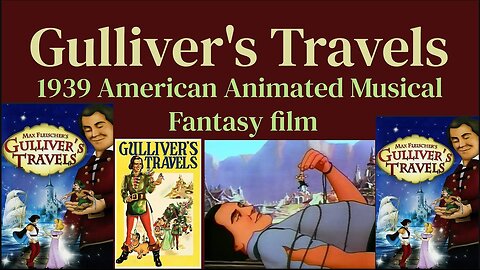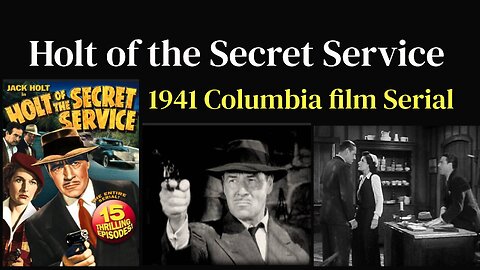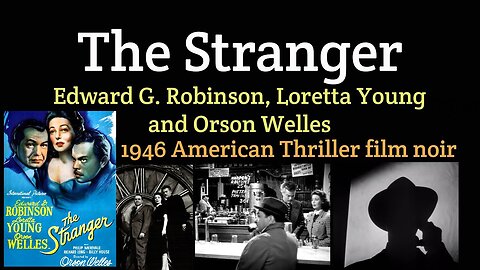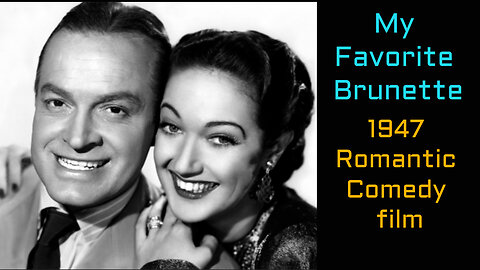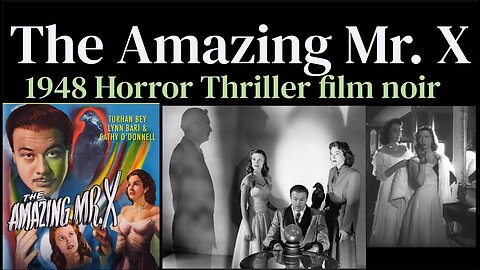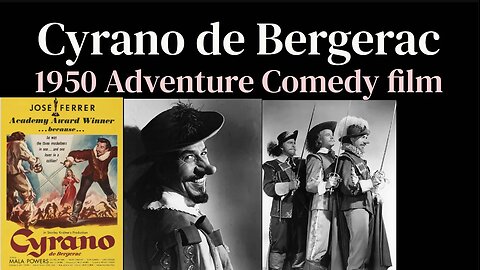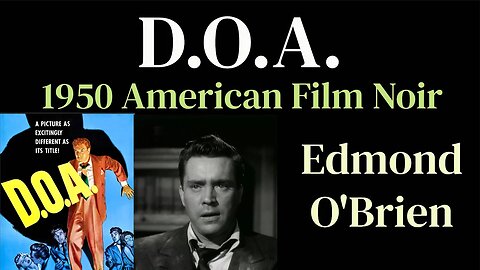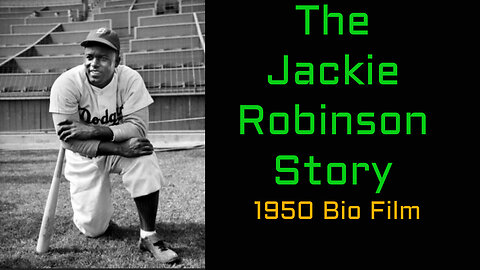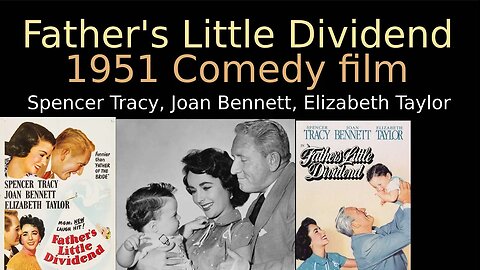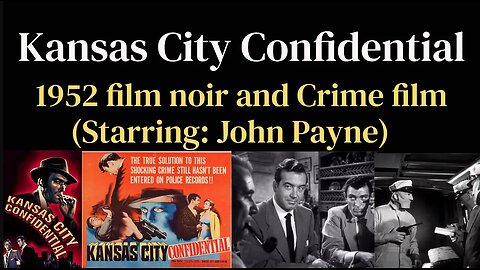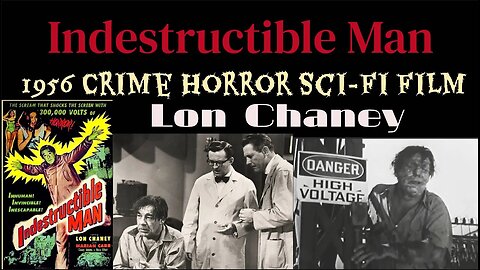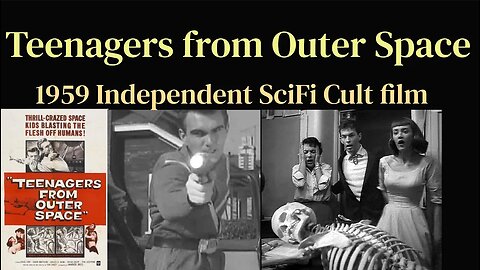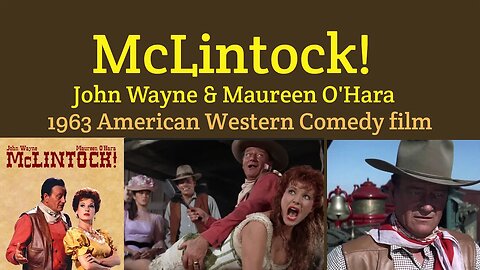Premium Only Content
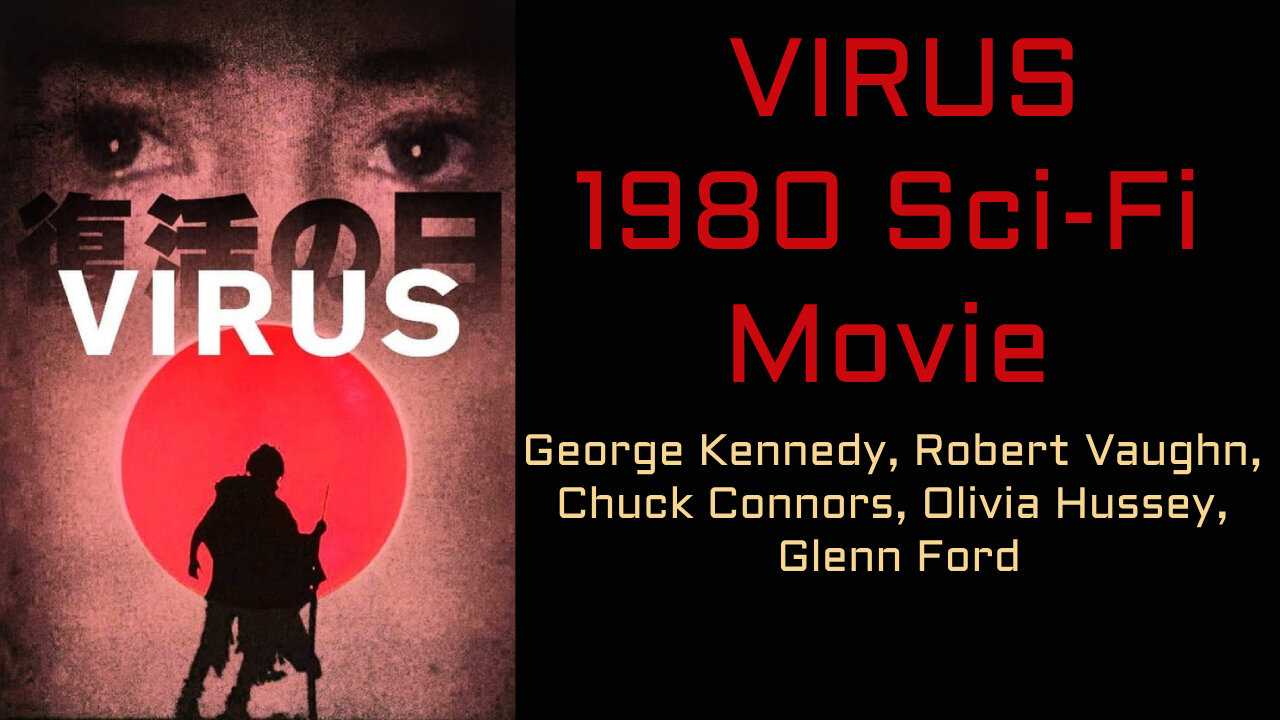
The Inspector General (1949 Color Musical Comedy film)
Glorifying the American Girl (1929 Pre-Code Musical Comedy film)
The Old Barn (1929 Talkie Film)
The Dance of Life (1929 American Pre-Code Musical film)
Big News (1929 American Pre-Code film)
The Bees' Buzz (1929 "Talkie" Comedy film)
Hook, Line and Sinker (1930 Pre-Code Slapstick Comedy film)
Abraham Lincoln (1930) Pre-Code Biographical film
Hot Curves (1930 Pre-Code) Comedy Drama film
Half Shot at Sunrise (1930 Pre-Code Comedy film)
The Bat Whispers (1930 American Pre-Code mystery film) (widescreen)
The Royal Bed (1931 Pre-Code Satirical Comedy film)
The Black Camel (1931) Charlie Chan Mystery Film
Mr. Robinson Crusoe (1932) Comedic, Adventure Movie
The Thirteenth Guest (1932 Pre-Code Mystery Comedy Thriller film)
Bird of Paradise (1932 Pre-Code Romantic Adv. Drama film)
The Kennel Muser Case (1933 American Pre-Code mystery film)
Deluge (1933 American Apocalyptic Sci-Fi film)
The Lost City (1935 Independent Sci-Fi movie Serial)
My Man Godfrey (1936 Colorized Screwball Comedy film)
Nothing Sacred (1937 Technicolor screwball comedy film)
Gulliver's Travels (1939 Animated Musical Fantasy film)
Made for Each Other (1939 American Romantic Comedy film)
Holt of the Secret Service (1941 Columbia film Serial)
Zorro's Black Whip (1944 Republic Pictures Movie Serial)
Captain America (1944 Republic 15-chapter Movie Serial)
Till The Clouds Roll By (1946 American Technicolor Musical film)
The Stranger (1946 American Thriller film noir)
The Chase (1946 American film noir)
Angel and the Badman (1947 American Western film)
My Favorite Brunette (1947 American romantic comedy film)
The Amazing Mr. X (1948 American Horror Thriller film noir)
My Dear Secretary (1948 American Comedy film)
Africa Screams (1949 Abbott & Costello Comedy film)
Quicksand (1950 American film noir)
Cyrano de Bergerac (1950 American Adventure Comedy film)
D.O.A. (1950 American film noir)
The Jackie Robinson Story (1950 biographical film)
Father's Little Dividend (1951 American Comedy film)
Royal Wedding (1951 American Musical Comedy film)
Kansas City Confidential (1952 American film noir)
Indestructible Man (1956 Crime Horror Sci-Fi film)
The Screaming Skull (1958 American horror film)
Teenagers from Outer Space (1959 Independent Sci-Fi Cult film)
The Bat (1959 American Crime-Mystery Thriller film)
House on Haunted Hill (1959 Crime, Horror, Mystery film)
The Little Shop of Horrors (1960 American Horror Comedy film)
Carnival of Souls (1962 Independent Horror film)
McLintock! (1963 American Western Comedy film)
Night of the Living Dead (1968 American Independent Horror film)
Virus (1980 Japanese Sci-Fi Film)
Virus (1980 Japanese Sci-Fi Film)
Virus, known in Japan as Fukkatsu no Hi (復活の日, lit. "Day of Resurrection"), is a 1980 Japanese post-apocalyptic science fiction film directed by Kinji Fukasaku.] Based on Sakyo Komatsu's 1964 novel of the same name, the film stars an international ensemble cast featuring Masao Kusakari, Sonny Chiba, George Kennedy, Robert Vaughn, Chuck Connors, Olivia Hussey, Edward James Olmos, Glenn Ford, and Henry Silva.
At the time of its release, the film was the most expensive Japanese film ever made.
Plot
In 1982, a shady transaction is occurring between an East German scientist, Dr. Krause, and a group of Americans involving a substance known as MM88. MM88 is a deadly virus, created accidentally by an American geneticist, that amplifies the potency of any other virus or bacterium it encounters. The Americans recover the virus sample, which was stolen from a lab in the US the year before, but the virus is accidentally released after the plane transporting it crashes, creating a pandemic initially known as the "Italian Flu".
Within seven months, virtually all the world's population has died off. However, the virus is inactive at temperatures below -10 degrees Celsius, and the polar winter has spared the 855 men and eight women stationed in Antarctica. The British nuclear submarine HMS Nereid joins the scientists after sinking a Soviet submarine whose infected crew attempts to make landfall near Palmer Station.
Several years later, as the group is beginning to repopulate their new home, it is discovered that an earthquake will activate the Automated Reaction System (ARS) and launch the United States nuclear arsenal.
The Soviets have their own version of the ARS that will fire off their weapons in return, including one targeting Palmer Station. After all the women and children and several hundred of the men are sent to safety aboard an icebreaker, Yoshizumi and Major Carter embark aboard the Nereid on a mission to shut down the ARS, protected from MM88 by an experimental vaccine.
The submarine arrives at Washington, D.C., and Yoshizumi and Carter make a rush for the ARS command bunker. However, they reach the room too late, and Carter dies in the rubble of the earthquake, deep in the bunker. Yoshizumi contacts the Nereid and tells them to try to save themselves, adding that the vaccine seems to have worked “If that still matters”. “At this point in time, life still matters,” the captain replies, telling Yoshizumi to stay where he is: He might be safe.
Washington is hit by a bomb, and the screen fills with atomic bomb after atomic bomb exploding. From there the movie's ending diverges based upon the two cuts. In the American version, the screen goes black for a moment, and the end credits roll over footage of the Antarctic and a poignant song sung by a lone woman’s voice. The refrain is, “It’s not too late...” In the Japanese version, Yoshizumi survives the blast and walks back towards Antarctica. Upon reaching Tierra del Fuego in 1988, he finds survivors from the icebreaker, immunized by a since-developed vaccine. He reunites with the woman he fell in love with, they embrace, and Yoshizumi declares "Life is wonderful."
Cast
Masao Kusakari as Dr. Shûzô Yoshizumi
Tsunehiko Watase as Yasuo Tatsuno
Sonny Chiba as Dr. Yamauchi
Kensaku Morita as Ryûji Sanazawa
Toshiyuki Nagashima as Akimasa Matsuo
Glenn Ford as President Richardson
George Kennedy as Admiral Conway
Robert Vaughn as Senator Barkley
Chuck Connors as Captain McCloud
Bo Svenson as Major Carter
Olivia Hussey as Marit
Henry Silva as General Garland
Isao Natsuyagi as Commander Nakanishi
Stephanie Faulkner as Sarah Baker
Stuart Gillard as Dr. Edward Meyer
Cec Linder as Dr. Latour
George Touliatos as Colonel Rankin
Chris Wiggins as Dr. Borodinov
Edward James Olmos as Captain Lopez
Colin Fox as Agent Z
Ken Pogue as Dr. Krause
Alberta Watson as Litha
Background and production
In the 1970s, producer Haruki Kadokawa formed the Kadokawa Production Company. Its releases included Kon Ichikawa's The Inugamis and Junya Sato's Proof of the Man, with the latter having American cast members such as George Kennedy. Kadokawa began to develop films that were often based on literary properties held by Kadokawa's publishing arm.
The domestic box-office for these films was large, which led to Kadokawa putting US$16 million into the film Virus, making it the most expensive film in Japanese history on its release. The film was shot on location in Tokyo and various locations throughout Canada, including Kleinburg, Ottawa, and Halifax. The production was heavily supported by the Chilean Navy, who lent the submarine Simpson (SS-21) for use as a filming location. Submarine interiors were filmed on-board HMCS Okanagan (S74), an Oberon-class vessel that served in the Canadian Forces.
During filming, a Swedish cruiser used to transport crew was heavily damaged by a coral reef off the Chilean coast and had to be rescued by the Navy.
Janis Ian wrote the lyrics to the song "Toujours Gai Mon Cher (You Are Love)" and performs it. In the closing credits, it is erroneously listed as "Tourjours Gai Mon Cher". The music was produced by Teo Macero.
Release
Virus was released theatrically in Japan on 28 June 1980 where it was distributed by Toho.
The American version of the film was shown for review at the Cannes Film Festival in May 1980 as a "work-in-progress" print. The non-English language footage was dubbed into English for this release and it ran at 155 minutes. It was initially released to home video in the United States with a 108-minute run-time and was presented on television with a 93-minute running time. The original Japanese-language cut was released to home video in 2006 with English subtitles.
-
 9:04
9:04
GBGunsRumble
12 hours agoGBGuns Armory Ep 134 Walther PDP F Pro
28.4K1 -
 13:12
13:12
Melonie Mac
21 hours agoAspyr Teases Possible New Tomb Raider Games in Classic Remastered Style
11.1K7 -
 44:49
44:49
Chrissy Clark
14 hours agoThe Rise Of Female Shooters, ABC News’ $16M Settlement, & MORE I Underreported Stories
15.5K4 -
 2:49:13
2:49:13
InfiniteWaters(DivingDeep)
22 hours agoIt's Over - The Matrix Is Cooked | Infinite Waters
16.2K9 -
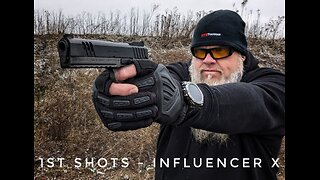 15:49
15:49
Chris From The 740
1 day ago $4.63 earnedThe EAA Girsan Influencer X - Not Your Grandpa's 1911
37.1K2 -
 25:38
25:38
Producer Michael
17 hours agoLuxury Souq's MULTI-MILLION DOLLAR Watch Collection!
90.8K5 -
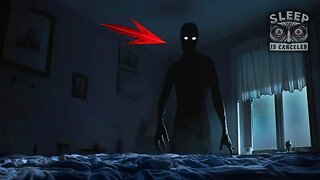 17:06
17:06
Sleep is CANCELED
22 hours ago10 SCARY Videos To Keep You Up All Night!
59K2 -
 2:37
2:37
Canadian Crooner
1 year agoPat Coolen | Let It Snow!
33.2K9 -
 2:44
2:44
BIG NEM
13 hours agoWhat's Really Behind the Fake Alpha Male Epidemic?
32.6K4 -
 57:20
57:20
State of the Second Podcast
7 days agoThe Inventor of Bump Stock Fights Back! (ft. Slide Fire)
19.2K5
